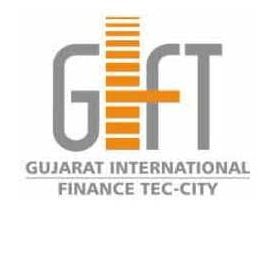FTA expected next year, says Sec-Gen.

The intra-BIMSTEC trade has the potential to grow to US$240 billion from the current estimated US$40 billion once a Free Trade Agreement is implemented, M. Shahidul Islam, Secretary-General of the seven-member country group, citing estimates by think-tank groups.
“That is the potential and it would be much easier to go to that potential,” he said, expecting to sign the BIMSTEC FTA next year (2019).
The Bay of Bengal Initiative for Multi-Sectoral Technical and Economic Cooperation (BIMSTEC) has seven members – Bangladesh, Bhutan, India, Myanmar, Sri Lanka, Nepal and Thailand.
India, he said, has given its opinion on the revised FTA, the first draft of which was ready in 2015 but have been revisited on call from some member countries.
“The FTA draft for goods and trade was already prepared in 2015 but then some member countries felt we should re-visit it.
“That has been done and we have got opinion from India. Now if we resume the trade negotiation, it will not take much time to finalise.
“We will be very happy if we can finalize the goods and trade as well as the supporting agreements on customs cooperation next year,” said Shahidul, who delivered a keynote address at a workshop “BIMSTEC at 20: Priorities and Prospects”.
He also said that BIMSTEC connectivity master plan will be finalize this year.
“Once it (connectivity plan) is approved by the member states, we hope to have a formal launching, most probably, in New Delhi as India is the lead country for connectivity,” said the Secretary-General.
The Delhi launch of the connectivity master plan will also give visibility to the world, he added at a forum held in Singapore on 24 Sept 2018.
Shahidul also sees automatic linking of the BIMSTEC connectivity plan with that of the ASEAN Connectivity Plan 2025, expanding the BIMSTEC countries reach across the South East Asian region.
The connectivity link-up between BIMSTEC and ASEAN will bring together combined US$6 trillion of economy – US$3 trillion from each side.
Meanwhile, Singapore’s Ambassador-at-Large Ong Keng Yong has shared his ASEAN experience during his tenor as Secretary-General.
Delivering the special address at the international workshop on ‘BIMSTEC at 20: Priorities and Prospects’, Ong emphasised on the centrality of issues for any grouping to move forward.
He pointed out that the current will to strengthen the BIMSTEC mechanism provides an opportunity not be missed.
Ong said that it is, therefore, imperative for BIMSTEC to act quickly to produce tangible results.
Ong, who is also the executive deputy chairman of the S Rajaratnam School of International Studies at Nanyang University of Singapore, urged BIMSTEC to target “low hanging fruits” such as business and market developments.
He said that these areas will create goodwill and trust in the organisation’s potential, which will have a virtuous spill-over effect and will open ways for other modes of cooperation.
Ong added that enhancing infrastructure and standardising regulations to allow cross-border movement of people and goods are of fundamental importance, and that necessary steps must be taken to focus on the digitalisation of the local economies and engagement of its population.
The BIMESTIC workshop was organised by the Institute of South Asian Studies (ISAS) at the National University of Singapore, in collaboration with the Consortium of South Asian Think Tanks (COSATT) and the Konrad Adenauer Stiftung (KAS), Singapore, on 24 September 2018. Fiinews.com









